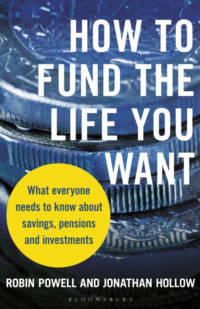Oct
2022
What can we learn from the Woodford scandal?
DIY Investor
3 October 2022
The authors of a new book about DIY investing look at what we can learn from the downfall of Neil Woodford.
The news that the Financial Conduct Authority (FCA) is seeking £306m in redress for investors in the collapsed Woodford fund has raised hopes – and breathed fresh life into a long-running scandal.
The Woodford fund’s administration company, Link Fund Solutions, is subject to a takeover; the FCA has said it will approve the takeover, on condition that the new owner takes responsibility for a sizeable redress payment.
But justice for Woodford investors still appears a long way off. Link has suggested it could walk away from its UK-based funds administration business rather than pay a fine or compensation.
There’s no room in this article to go back over all the twists and turns of this scandal, or explain how a well-known and highly respected fund manager came to flop so spectacularly.
So what are the key takeaways from the Woodford saga?
The first is that sensible investing isn’t meant to be exciting. Finance stories can be very boring, so the media and the marketing and PR arms of the investment industry like to discover ‘heroes’. Investors should beware the temptation of narratives and stories, heroes and villains. Focus on evidence.
Secondly, there are thousands of funds to choose from, and, simply by the law of averages, there are bound to be funds that outperform.
Neil Woodford was the UK’s most celebrated ‘star manager’ for more than 20 years. But not even two decades of data is able to prove beyond reasonable doubt that a particular fund manager is genuinely skilful. The long-term evidence we examine in our book shows that luck is the main factor in star managers’ success. In the long run, their fall is predictable.
Thirdly, the vast majority of actively managed funds do not beat the market on a properly cost- and risk-adjusted basis over meaningful time frames.
 The SPIVA scorecard run by S&P Dow Jones Indices tracks the success of active funds around the world. Over a five-year period, for example, 73% of all actively-managed funds investing in European companies underperformed the market average. Funds in other markets did little better.
The SPIVA scorecard run by S&P Dow Jones Indices tracks the success of active funds around the world. Over a five-year period, for example, 73% of all actively-managed funds investing in European companies underperformed the market average. Funds in other markets did little better.
The consistently poor performance of active funds has been documented in a mountain of academic evidence. A ten-year analysis led by Dr David Blake at Bayes Business School, for instance, showed that just 1% of active managers beat the market – but the higher investment returns these ‘stars’ generated were then eaten up before investors saw them. The gains were eroded by higher fees charged by the star managers!
The alternative approach (index-based investing, or passive investing) always returns the market return, minus a relatively modest cost. And over the long term, markets have always risen. That’s why we believe investors should invest in index funds, trade infrequently, and reduce their fees wherever possible – rather than follow the most fashionable fund manager.
In summary: ‘star’ managers claim they can beat the market; but, in the long run, almost none does.
The Woodford scandal also points to another weakness of active fund management: the slipperiness that makes it more difficult to regulate.
When Woodford’s fund collapsed in 2019, it held less than 20% of its assets in FTSE 100 companies, compared to more than 50% when it was created. And by then 20% of the fund was now in companies that could not easily be bought and sold.
This was not what investors believed they had bought into. They thought they had put money into a liquid fund based on fairly mainstream businesses and could draw it out at any time.
No doubt Woodford and his fund managers thought they had a ‘cunning plan’; indeed, active managers are paid to come up with cunning plans – plans that cut a path through the market which nobody else can see.
But this makes it harder for regulators to see through what they are doing as well.
By contrast, index funds are based on simple, transparent – and dare we say ‘boring’ – principles.
In short, investors should follow the evidence. You can control asset allocation, and you can control your fees. But you can’t control or foresee exactly when markets will rise and fall – and neither can active managers.
Woodford wasn’t the first famous fund manager to fall from grace, and he won’t be the last. So learn the lessons this sorry scandal has taught us … or when the next ‘star’ crashes to earth, you could be one of the investors nursing heavy losses.
 Jonathan Hollow worked for the government’s Money and Pensions Service. Robin Powell is a journalist and campaigner for transparency in investing.
Jonathan Hollow worked for the government’s Money and Pensions Service. Robin Powell is a journalist and campaigner for transparency in investing.
Their new book How To Fund The Life You Want is published by Bloomsbury on 13 October, and is available to pre-order now.
Commentary » Latest » Mutual funds Commentary » Mutual funds Latest » Take control of your finances commentary » Uncategorized
Leave a Reply
You must be logged in to post a comment.